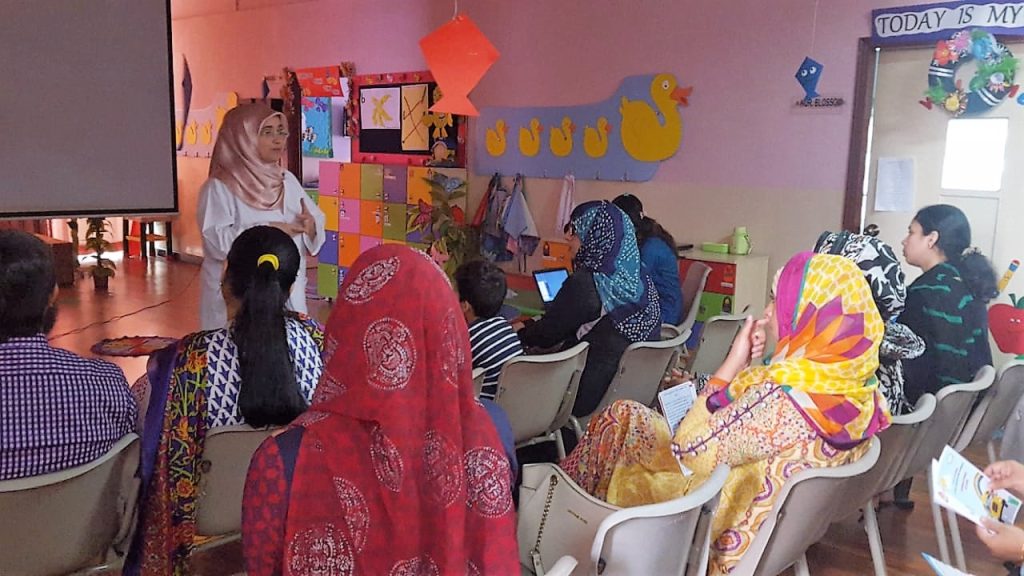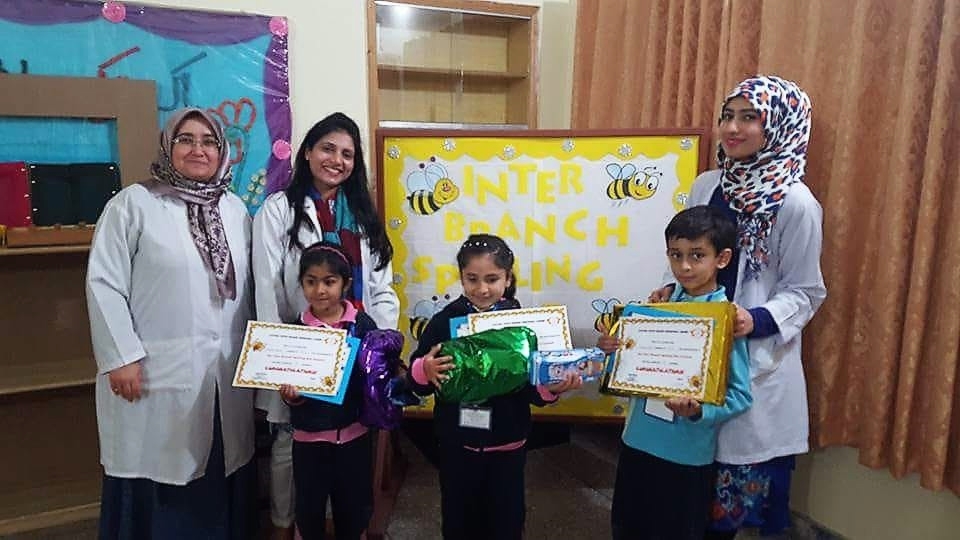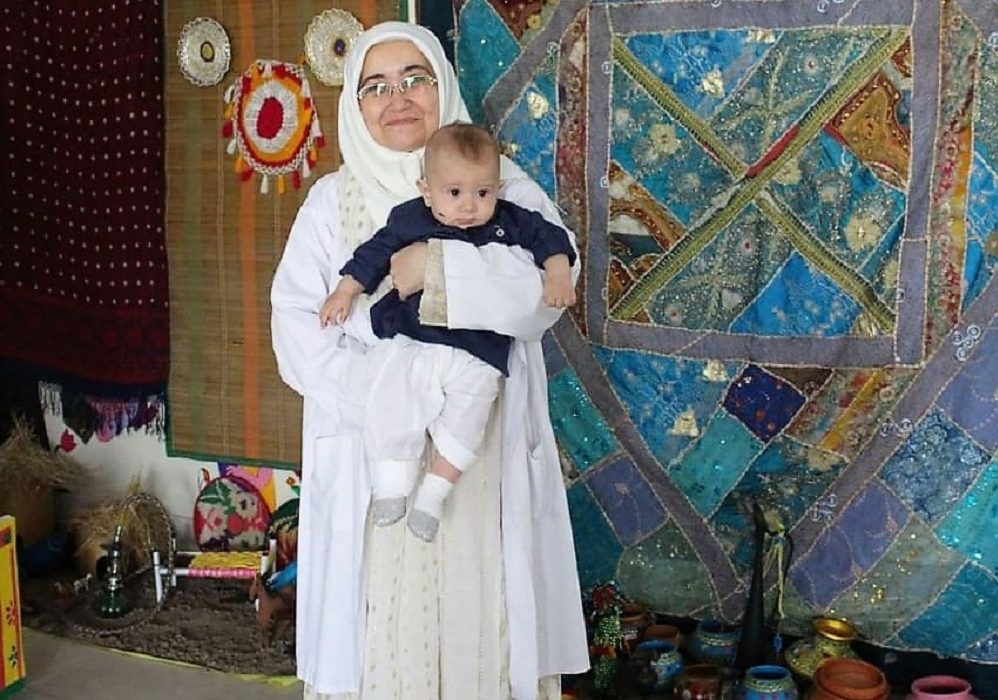Educationist Fatma Esra Tosun (3): We were tested with a bread machine on our way to Islamabad!

Teary-eyed farewell to Lahore and days in Karachi
February 15, 2022
Kimse Yok Mu’s flood relief and a meeting with the Punjab Chief Minister
February 20, 2022After working at the PakTurk Schools in Khairpur Mirs for a year, educationist Fatma Esra Tosun and her family moved to Islamabad where she worked for 9 years as a teacher and school administrator. In this part of our interview, Tosun narrates her distressed and remarkable first trip to Islamabad and what she experienced afterwards.
Did living in the capital Islamabad after Khairpur Mirs make any difference? How did you feel?
I lived in Islamabad for 9 years. Of course, there are many memories, but first, I would like to recap an incident on our first trip. It still moves me. After learning Islamabad as our next place of duty, we had taken our annual summer leave and visited Turkey. Around the time of our return to Pakistan, my husband had left me with the children in Turkey and gone to Pakistan beforehand to rent a house in Islamabad and make preparations before my arrival with the kids. Meanwhile, my father had bought us one of the popular bread-makers to take to Pakistan. It was because my daughter Nevin had told her grandfather, “We cannot eat bread there, because the bread is sugary!” You know how a crucial part of diet is bread for Turks. Yes, some sugar was added to the loaves of bread in Pakistan. My father had been worried and saying, “My children and grandchildren cannot eat bread!” he had bought that bread-maker.
As we were about to leave, he brought the bread-maker and said, “You will bake bread for the children in this!” I didn’t want to take it because the kids were so young and we had other luggage. Even though the appliance was small, it had a bigger box. I said “I cannot take this with me” but he would not listen. He said, “Okay, if you exceed your share of luggage on board, don’t take it, but if some weight remains, take it along!” I weighed my luggage at the check-in counter and it was within the allowed limit, so I took the bread-maker along. We landed in Karachi and we were to take a connecting flight to Islamabad. The luggage, which had not been an issue during our departure from Turkey, posed a challenge. Even if you arrived from abroad for a connecting flight, domestic airlines reduced allowed baggage limit by 10 kg. Our per-person luggage allowance had decreased from 30 kg to 20 kg. I had to pay for the excess baggage. The check-in staff asked 300 rupees for that and I had 30 rupees only. I tried to explain that I was a teacher at the PakTurk Schools, but the staff did not yield. Pointing at the bread-maker box, I said, “Well then, let this stay here. I’m not taking it. It’s for you to take, I give up all my personal rights on this thing for your sake. I have no money. Allow me and let me rush to the flight.” They didn’t accept this either. They said, “Who knows, maybe a bomb’s been packed inside. We cannot keep this!” As the last call for the flight, they kept on announcing our names on the PA. I had no phone to call my husband and explain him the situation. I requested people around me for their phones so I could call my husband. I knew little Urdu. I told them my problem in English. Wasn’t there someone to understand me or help? No one was helpful that day, at first.
AS I PRAYED IN DESPERATION, I HEARD AN INTERESTING VOICE
It was an instant when all causes lapsed. I closed my eyes. It felt as if the airport terminal kept on spinning. I wept and the children wept too. I was so much overwhelmed and upset. “O Allah, we arrived here for Your sake, not for anything else. Not for teaching or anything. We arrived here just for You. Please do not abandon me to ruin here with those two kids,” I prayed.
How did you solve the issue? Did you board that plane?
After I prayed in desperation, I heard a voice asking me in English, “How can I help you?” I opened my eyes. Standing in front of me was a tall man with fair complexion, black eyebrows, dark eyes, and glasses. He did not look like a Pakistani. I never forget that face. “Do you have a phone?” I asked first. “Here you are,” he said, and handed me his phone. I called my husband but could not speak because of constant sobbing. I said “We couldn’t board the plane” because the Islamabad flight had departed. I told my husband about the situation. “Tell that man to pay for the luggage, we’ll pay him later,” said my husband but it was not a small amount. How would I ask that from someone I did not know? I did not agree. Then my husband wanted to talk to the man. They talked and my husband said, “Okay, don’t worry, we’ve agreed. He will help you.” Back then, PIA flew from Karachi to Islamabad only on Mondays and Thursdays. We had to wait for three days until Thursday. That helpful person said “I know the place” and took us to the Pakistan International Airlines ticketing office. He bought our airline tickets for Thursday. He also paid the amount for the excess luggage.

Then he asked where we would stay for three days. I told him I would stay with my colleagues in Karachi. How would I reach to their place? I had no money and no transport. “I’ll take you there,” the man said. Normally I don’t trust strangers, but there I trusted and agreed. We loaded the luggage in his car and got in with children. I never forget, it was a vintage white Cadillac. While driving, he said he was a businessman. When we arrived at Mr. Irfan’s residence, we thanked him and got his phone number to stay in touch. After arriving in Islamabad, my husband called him at that number, but it was not registered. We could never reach that number. We could never find that man.
What if he deliberately gave you the wrong number?
I do not know. Later, I thought he was Khidr Alayhissalaam considering the way he helped me. Mr. Irfan could not reach that number either. According to the Pakistani telephone registry, there was no such number. The recorded voice on the line kept on saying, “This number is not registered.” Even today, I would recognize that person if I met him. We lived there for so many years, but we never saw that person again. I can never forget that incident. I didn’t think so back then, but when I couldn’t access him afterwards, I believed he was a special helper.
How did the Islamabad period, which started with such an adventure, continue? What did you do there?
I first taught to the Turkish students in Islamabad. Afterwards, I worked as a deputy principal in a kindergarten. I also worked as a principal. I worked in kindergartens for 10 years. Since the administrators had to take classes for some hours a week, I taught Life Sciences.
A BOMB EXPLOSED NEAR THE SCHOOL BEFORE THE BOARD EXAM
As teachers and administrators, we thought that the early childhood education English books coming to Pakistan lacked certain points. A commission was formed for preparing new books. My colleagues and I authored kindergarten books for the PakTurk Schools. A friend and I worked for three months in the editing and proofreading of the books. Later, when those books were marketed by authorized publishing houses, they were used and appreciated not only in Pakistan, but also in Turkish schools in several countries such as Afghanistan, Yemen, Australia and England. We even learned some schools in Pakistan copied and used the books we had prepared. We even received pirated copies of the books.
As an educationist, did you experience any difficulties arising from the social structure?
A small segment in Pakistan did not want girls to be educated. They wanted our schools to be closed because we also educated girls. Not only our schools, but also the public schools for girls across the country were targeted by this group. In Islamabad, our school was on a main street. Some meters down the road was a public high school for girls. A bomb exploded in front of that high school in the evening one day before the board exams. Only girls would take the exam in that building. The schemers had set the timebomb to explode at 9:00 pm; possibly they had meant to set it for 9:00 am. A security guard lost his life in the explosion. No one else was harmed because the school was empty. All the windows in that neighborhood were shattered. Our school also suffered some damage. I normally stayed at school until late. Knowing this, teachers and parents called and asked, “Ma’am, are you at school?” they asked, but thankfully I was home that day. Even though there was quite a distance between our school and the explosion site, the strong tremor was felt.

There were also times they sent letters to scare us. They threatened by saying “Close the school or face the consequences”. I was working in a kindergarten, but they were a group who did not want girls to be educated even when young. In that way, they demanded the closure of the school with threats. Once, they directly threatened me by sending a personal letter. They knew our identity. I showed that letter to our own school administrators. “Ma’am, by Allah’s leave, we will continue the same,” they said. By Allah’s grace, nothing happened. We simply said “Pakistan Zindabad, PakTurk Paindabad”, that is, “Long live Pakistan, let PakTurk exist forever.”
There had to be beautiful experiences despite the difficulties, right?
Of course, there were! For sure, in Pakistan we lived everything to the fullest. It’s the first place I’ll go if I have the chance. Pakistan was like our homeland. In this sense, I would like to share an incident: Since I was the kindergarten administrator, I was also supervising the admission process. We would first tell the parents about our school, our staff, our mission and why we had been in Pakistan. Later, we would enroll the children to the school. A great competition exists between domestic and foreign private educational institutions in Pakistan. This was why we had to explain ourselves, our school, and the contribution we would make to the future of children, especially to the parents who just got to know us. A family who had enrolled one of their children in our schools would not hesitate sending their other children afterwards, but it was important to introduce our schools properly to those who brought their child for the first time. Whenever we talked about our plans for the future of their children and the levels they could reach, the families were delighted.
TURNS OUT A FUTURE PARENT SAW ME IN A DREAM
I was in my room at the school during the admission period. Since I kept my door open, I could see the movements by the door. I saw a gentleman and his wife enter through the main door smiling. Actually, Pakistanis generally smile, but it felt as if I and this family had known each other for years. First, they went over to the school secretary. Later, she came and said, “Ma’am, the visitors want to meet you.” I invited them to my room. The lady was Pathan and I couldn’t talk to her because she didn’t speak English or Urdu. Her husband was a journalist and he spoke English fluently. As he spoke, the first thing he said was, “I saw you before!” I wasn’t surprised because we met so many people, but I didn’t remember meeting them. “Sorry, I cannot remember, where did we meet?” I asked and he replied, “I saw you in my dream!”
He then explained: “We had not had a child for ten years. Eventually, we had a daughter and she is now of school age. We couldn’t decide on a school for her. I and my wife recited many ‘istikhara’ – prayers of seeking guidance – for that. (They attach great importance to istikhara in Pakistan. They rely on istikhara in almost every decision.) In a dream, you and a Pakistani lady were in an embrace and you were saying ‘We are two countries, but one nation’. Now that I have seen you, I understand you are the person I saw in my dreams. I had that dream several times, but I did not understand what that expression meant. Two women I had not seen in my life kept on saying those words to me in my dream, and I could not understand. I narrated my dreams to my wife. She couldn’t make anything out of them either. Later, when I told a friend of mine, he said, “Two Countries, One Nation is the motto of the PakTurk Schools.” I didn’t even know there was a Turkish school in Pakistan. My friend said, ‘Look to the right on your way home, you will see the signboard of the school’, and described me this place. As I was passing by, I looked and saw the Turkish flag. I came to you with my wife. While entering, I saw you are one of the women I saw in my dream. I showed you to my wife, this was why we were laughing.”
I was so surprised by what he said. I said, “Let me tell you a little bit about our school if you wish,” and he said, “We’ve already come here to enroll our child. You don’t need to tell anything about the school. You had told me about the documents required for registration, payments and so on in my dream. I have everything down to the photos. Please, enroll our daughter.” He also made a one-year tuition fee payment in advance. Afterwards, I invited a Pakistani colleague to meet the child and do a little interview. As soon as the man saw her, he stood up and wept. “This was the second person I had seen with you in my dream,” he said. My colleague Rafia is gem of a lady. May Allah bless her. She never had a child of her own, but she profoundly loved and cared for her students. She also loved and supported that child. Later, I told my staff what the parents had told me. That little girl grew up and studied in our schools until her graduation. I remember his father also wrote about this incident in his newspaper.
To be continued…
***
Part Two: Educationist Fatma Esra Tosun (2): I was never a stranger in Khairpur Mirs





No Comment.